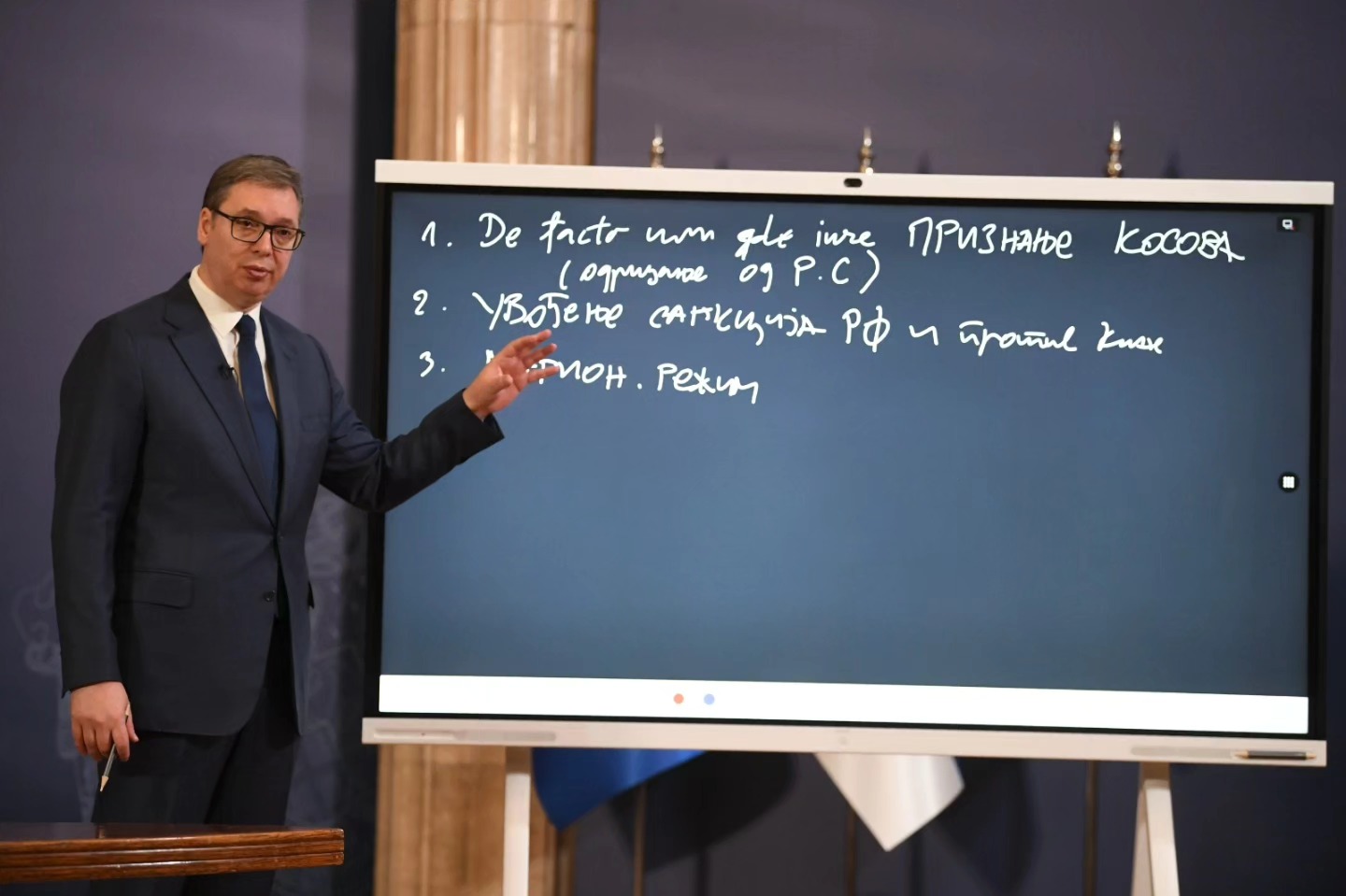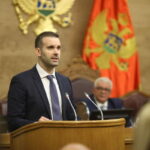European integration and membership in the European Union are in line with the national interest and a strategic determination of the Republic of Serbia, according to the website of the Serbian Ministry of Foreign Affairs. The reality, however, is that accession negotiations have practically stopped.
Feb 24, 2022 Factor
On April 29, 2008, Serbia signed a Stabilization and Association Agreement (SAA) with the European Union. The document entered into force on September 1, 2013. Serbia submitted an official application for EU membership on December 22, 2009 and received candidate status on March 1, 2012. The decision of the European Council to open accession talks was adopted on June 28, 2013. The actual launch of the negotiation process came with the first meeting of the Intergovernmental Conference on January 21, 2014.
During the negotiation process between the Republic of Serbia and the European Union, 22 chapters were opened – out of 35, combined into six clusters – and two of which were temporarily closed.
The latest round of negotiations between the EU and Serbia, the Intergovernmental Conference, was held in December 2021. Since then, over more than two years, not a single chapter of the negotiation framework has been opened. The reason is Belgrade’s refusal to support the EU’s foreign policy and security course. More specifically, it’s the reluctance of Serbian authorities to align with EU sanctions, introduced due to Russia’s aggression against Ukraine.
It should be noted that Belgrade did not join the restrictive measures introduced by the European Union even after Russia annexed Crimea in 2014, but this practically did not interfere with the negotiation process and the opening of new chapters. However, after Russia’s full-scale invasion of Ukraine in early 2022, the EU changed its attitude to security and foreign policy issues and made them a priority. After that, they stopped turning a blind eye to Serbia’s efforts to dodge from imposing sanctions against Russia.
For more than two years, the European integration of Serbia has remained in stagnation, and the latest decision of the EU to introduce a new plan for the development and European integration of the Western Balkans demonstrated that no positive developments are foreseen for Belgrade any time soon.
Six billion euros, but…
On April 24, the European Parliament voted in favor of the Growth Plan for the Western Balkans, which provides EUR 6 billion in funding, of which 2 billion will be provided in the form of grants and the remaining four – in the form of loans. The latest document should complement the existing financial instruments of pre-accession assistance. Implementation of the Plan, as planned by the EU, should double the economy of the countries in the region in the next decade. However, the EU goal is not only to stimulate economic growth in the six countries across the region, but also to promote the reform process. In this way, the EU expects to help the nations of the Western Balkans to prepare for accession as soon as possible.
According to the Plan, the countries in the region will have to meet a number of challenging criteria in order to benefit from the package of financial assistance. The basic requirements, which are equally valid for all countries, relate to the rule of law, respect for the principles of democracy, institutional reforms, and taking the necessary measures to ensure controls so that funds are not misused, abused, embezzled, or corrupted.
Another condition is the need for the candidate countries to fully align their foreign and security policy with that of the EU, including on the introduction of restrictive measures against Russia in connection with its invasion of Ukraine.
Thus, the preservation of Belgrade’s current multi-vector foreign and security policy, which rules out aligning with EU sanctions against the Russian Federation, but instead provides for maintaining friendly relations with Moscow, means that the freeze of Serbia’s EU integration will prevail.
It is possible to change the situation and unblock the negotiations between Belgrade and Brussels through:
a. A radical change in the EU policy toward the Russian Federation and, accordingly, the lifting of sanctions, what can be expected
1. after the end of the hot stage of the war in Ukraine,
2. as a result of the change of the EU leadership to a radically pro-Russian one.
b. An independent refusal of the Serbian leadership from friendship with Moscow.
Obviously, none of these options seem realistic any time soon.
“Dogodine u Prizrenu”
However, sanctions against Russia are not the only barrier on Serbia’s path to the EU.
There is one more special condition put forward before Serbia, which is related to progress in the process of normalization with Kosovo.
More precisely, this condition applies to both Belgrade and Pristina, but Kosovo is still a potential candidate for EU accession, while Serbia is already in the accession process, so the weight of this requirement is different for the two sides.
The Serbian-Kosovo dialogue, mediated by the European Union, has been going on for more than 10 years. It was assumed that the breakthrough would be the agreements reached at the tripartite meeting of representatives from Belgrade, Pristina, and the EU in Brussels on February 27, 2023, and in Ohrid on March 18, 2023 – the Agreement on the path to normalization between Kosovo and Serbia and the Implementation Annex to the Agreement.
But there were no positive developments. On the contrary, the armed clashes in the north of Kosovo, in Banjska, last September led to a regression in the dialogue and made relevant not so much the issue of establishing relations between Belgrade and Pristina but the one of preventing the renewal of hostilities in the region.
In order to stimulate the process of normalization, the European Union decided to strictly bind European integration to the implementation of the agreements reached in the dialogue process.
For Kosovo, the main requirement arising from the Agreement and the Annex is the establishment of the Association of Serbian Municipalities (ASM).
According to the agreements, Serbia shall not oppose Kosovo’s membership in any international organization (in fact, this also applies to the current process of Kosovo’s accession to the Council of Europe).
Both sides are also required to mutually recognize documents and national symbols, including passports, degree diplomas, license plates, and customs marks. (Something Serbia referred to as a de-facto recognition of the “fake state of Kosovo”).
Unlike all other agreements in the EU-sponsored Belgrade-Pristina dialogue, these agreements have become binding.
EU foreign ministers this week adopted amendments to Chapter 35 of the accession talks with Serbia, laying down directly into the negotiating framework that Serbia must fully commit to its obligations arising from the Agreement on the Path to Normalization with Kosovo, in accordance with the Implementation Annex agreed on March 18.
Chapter 35, along with chapters 23 and 24 on the rule of law, has particular weight in membership negotiations. According to the negotiating framework, a lack of progress in these areas could slow or halt progress in all other areas of the talks.
“Putuj Evropo…”
The time for maneuvering and imitation is over.
Pristina should finally create a military police force, or at least demonstrate real progress in this regard.
As for Serbia, it should send a signal that it has come to terms with the loss of Kosovo and recognize, at least symbolically or partially, the independence of its former autonomous region.
However, given the public mood, this barrier on the way to the EU will be extremely difficult for Serbia to overcome – if at all possible.
And it’s not only because Serbian citizens and, accordingly, the government, which focuses on their voters, are not mentally prepared for this. A significant factor was the intervention from Russia, which in recent years invested plenty of energy and resources in hybrid meddling efforts, which involved fanning radical sentiments in Serbia, primarily regarding Kosovo. This is also about the spread in the public space of narratives about the return of lands by force; and informal support for the radicals, who have been putting pressure on the government in Belgrade, demanding that they “never allow treason”; and the official support of the Serbian leadership in its intentions not to go for any compromise on the Kosovo issue… A separate track is the interaction of the Russian and Serbian Orthodox churches.
Russia, in fact, co-authored Belgrade’s current policy toward Pristina, which is about Serbia’s categorical denial of any concessions to Kosovo that could be regarded as its de facto recognition.
The latest decisions by the EU to include the issue of normalization between Belgrade and Pristina in the list of one of the key conditions for Serbia’s European integration forces Belgrade to either shift its current policy towards Kosovo or snub the idea of joining the EU in the near future. At the moment, the moves and statements by Serbian President Aleksandar Vučić and his team show that Belgrade is currently not ready to change its policy regarding Kosovo and sanctions against Russia. For Serbia, this would mean a stop on the path to the EU, which might not yet kill the dreams of a European Serbia but definitely put them on a back shelf. Putuj Evropo, nemoj više čekto na nas… But Russia will be able to celebrate a hybrid win in its claimed confrontation with the West on the “European front”.



